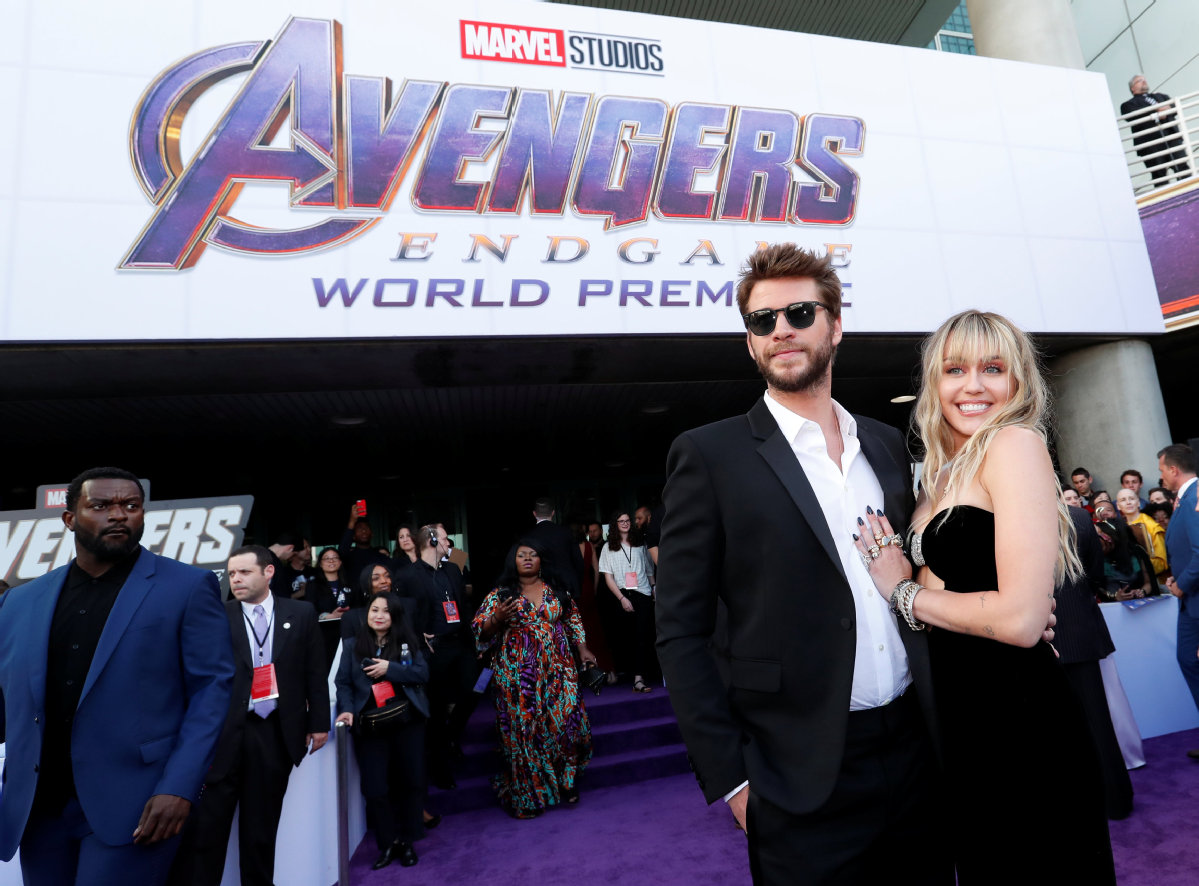Disney's movie magic a model for China's content creators


At 9 am on April 20, I was in a line of at least 50 people, slouching against the bar separating me from the entrance to Uniqlo, the streetwear emporium in downtown Shanghai's West Nanjing Road.
Honestly, I cannot even believe I bid my time there on a Saturday morning just for a T-shirt, after online attempts to order one in my size and preferred designs failed at midnight.
The ostensible draw prompting me and my "comrades" to open our wallets was some colorful tops stamped with images of superheroes featured in the Marvel Studios film. In fact, many items were sold out within moments after 11 am, when the store opened its doors.
Such enthusiasm isn't hard to comprehend, if you happen to know how the United States movie house, a part of Walt Disney Co, is expected to shatter box-office records with its release of Avengers: Endgame on Wednesday.
When Earth's mightiest heroes return to restore order in the universe (the film's plot, of course), Chinese fans are gearing up momentum to be among the first to reflect on and rejoice in the decade-long franchise.
Behind one of the highest-grossing film franchises of all time, Marvel Studios has seen brisk presales for Endgame in China. The company has raked in over 400 million yuan ($59.7 million) in roughly a week since April 12, and the actual box-office income is widely anticipated to smash previous blockbuster records.
With Marvel being a financial juggernaut, its cash cow isn't just about the theater - it's also in the merchandise. The on-screen connection to a movie or a character could easily lead one to form strong, passionate attachments to a franchise. For me (and many other diehard fans), is there a better way to show your love for the premiere than wearing a Marvel T-shirt?
Good movie merchandise can bring in big bucks. Marvel's consumer franchising business has registered compounded annual growth of 50 percent in the past two fiscal years of Walt Disney Co. In China, the company has tied up with nearly 100 domestic merchants with tailor-made licensees, from toys, apparel and cosmetics to electronic appliances, sports accessories and food, according to official figures.
And it's not just the Marvel series. The consistent performance of franchises like Frozen, Toy Story and Star Wars is helping Disney outshine competitors by measurements ranging from stock price growth to product licensing to ticket sales per movie.
To me, Disney's three-pillar approach in monetizing content could serve as a reference for any producers wanting to expand global reach and run a sustainably healthy business.
Quality storytelling is by and large the prerequisite. Creators manage to weave together disparate narratives to form the most complex stories, and they sometimes drop hints indicating what's coming to keep fans hooked.
For instance, Marvel's plans for its films are always structured in phases, with each one ending with an Avengers crossover movie. Some of the post-credit scenes contain clues to the next phase which require multiple viewings to catch.
A second pillar goes to the creation of a "synergy machine". With ownership of content at the heart, Disney can capitalize on a hit film by using other divisions, from its Disneyland attractions, TV tie-ins, music, merchandise, a Broadway musical and a new service called Disney+ to be rolled out this year that streams new and old shows built around its most popular franchises.
The exposure to more franchising opportunities would in turn enhance the brand and bring in more profit to be invested in crafting content: A closed-loop benign cycle.
Any successful business isn't confined to making money per se, but forging an emotional connection. Hence the third pillar boils down to the enormous input in masterminding business operations to resonate well with the audience.
To build up the momentum for the Endgame release, Disney organized a lottery-based meet and greet event featuring Marvel stars in Shanghai dedicated to fans in China. The Mandarin-speaking clip from Paul Rudd, who plays Ant-Man, drew appreciative laughter from the audience and was widely circulated on Weibo, China's equivalent of Twitter.
Now all eyes are on China to influence the world with its wealth of top-notch content, better known domestically as "intellectual property" or IPs.
For example, internet novels distributed by China Literature have proven to be a hit among overseas readers, with a series of books translated into 50-plus languages.
And China has a unique advantage in using technologies to drive business model innovation. Such digital makeovers, plus a glimpse of successful business cases like Disney, may catapult Chinese cultural and entertainment firm to the global forefront sooner than expected.



































